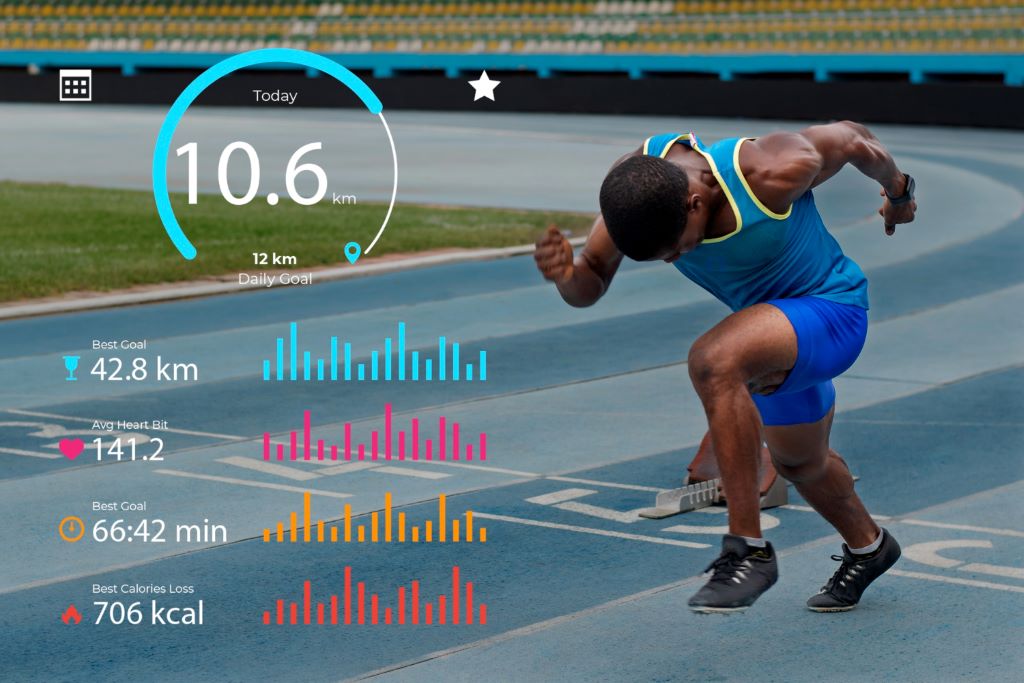In the fast-paced realm of sports marketing, where the competition for audience attention is relentless, digital advertising services have emerged as powerful tools to elevate strategies and achieve unprecedented levels of engagement.
Unlike traditional forms of advertising, which often have limited reach and measurement capabilities, digital advertising offers a vast array of platforms, targeting options, and interactive formats that enable sports marketers to connect with fans in more personalized and impactful ways.
Digital advertising services encompass a wide range of tactics, from social media advertising and content marketing to influencer partnerships and programmatic advertising. Each of these avenues provides unique opportunities for sports brands to amplify their message, drive fan engagement, and ultimately, enhance their bottom line.
Leveraging Digital Advertising Services in Sports Marketing
Digital advertising services have become indispensable tools in the arsenal of sports marketers, offering unparalleled opportunities to reach, engage, and monetize audiences across various digital platforms. By leveraging social media advertising, content marketing, influencer partnerships, and programmatic advertising, sports brands can amplify their message, foster deeper connections with fans, and drive revenue streams in innovative and effective ways.
Content Marketing and Native Advertising
Content marketing has become a cornerstone of sports marketing strategies, leveraging digital platforms to tell compelling stories and engage audiences. Native advertising seamlessly integrates branded content within relevant editorial or entertainment contexts, providing value to consumers while subtly promoting sports-related products or services.
Whether through sponsored articles, videos, or podcasts, native advertising offers an effective way for sports brands to enhance visibility and credibility in the digital space.

Social Media Advertising
Social media platforms have emerged as vital channels for sports event management marketing, providing direct access to millions of fans worldwide. With targeted advertising options on platforms like Facebook, Instagram, and Twitter, sports marketers can tailor their messages based on user interests, location, and demographics.
Whether promoting game tickets, merchandise, or exclusive content, social media advertising allows sports brands to foster deeper connections with fans and drive engagement.
Programmatic Advertising
Programmatic advertising technology has revolutionized the way sports marketers buy and sell digital ad inventory, streamlining the process and optimizing campaign performance. Through automated algorithms and real-time bidding platforms, advertisers can target specific audience segments across a vast network of websites, apps, and digital platforms.
Programmatic advertising offers unparalleled efficiency, scalability, and ROI potential, making it a valuable tool for sports brands looking to maximize their advertising impact.
Influencer Partnerships
Influencer marketing has emerged as a powerful force in sports marketing, leveraging the popularity and influence of athletes, celebrities, and social media personalities. By partnering with relevant influencers, sports brands can extend their reach, tap into new audiences, and drive authentic engagement.
Whether collaborating on sponsored posts, product endorsements, or experiential activations, influencer partnerships offer a unique opportunity to amplify brand messaging and foster genuine connections with fans.
The Evolution of Sports Marketing in the Digital Age
The Evolution of Sports Marketing in the Digital Age has been a transformative journey, marking a shift from traditional mediums to digital platforms. With the advent of digital advertising services, sports marketers now have unprecedented access to data, analytics, and targeted advertising options, allowing them to engage with fans in more personalized and impactful ways.
This evolution has not only expanded the reach of sports brands but has also revolutionized how they connect, interact, and build relationships with their audiences in today’s digital landscape.

The Power of Data and Analytics
One of the most compelling aspects of digital advertising in sports marketing is the wealth of data and analytics available to marketers. Through advanced tracking technologies, marketers can gain insights into audience demographics, preferences, and behavior.
This data-driven approach enables precise targeting, personalized messaging, and continuous optimization to maximize sports campaign performance.
Traditional vs. Digital Advertising
Traditionally, sports marketing relied heavily on television, radio, and print media to promote events, teams, and merchandise. While these mediums still hold relevance, the digital revolution has ushered in a new era of marketing possibilities.
Digital advertising platforms offer unprecedented targeting capabilities, real-time engagement metrics, and a diverse array of formats to capture audience attention.
Emerging Trends and Innovations
Emerging trends and innovations in digital advertising are shaping the future of sports marketing. Technologies like virtual reality (VR) and augmented reality (AR) are creating immersive fan experiences, while voice-activated advertising opens up new channels for engagement.
With a focus on data privacy and regulation, sports marketers are adapting to ensure transparency and compliance. These trends underscore the dynamic nature of digital advertising, driving continuous innovation and transformation in the sports marketing landscape.
Immersive Technologies
The emergence of immersive technologies such as virtual reality (VR) and augmented reality (AR) is reshaping the sports marketing landscape. From virtual stadium tours to interactive fan experiences, these immersive technologies offer innovative ways for sports brands to engage fans and create memorable experiences.
Whether through VR-enhanced advertising campaigns or AR-powered merchandise promotions, sports marketers are harnessing the power of immersive technologies to drive excitement and engagement in new and exciting ways.
Voice-Activated Advertising
With the rise of smart speakers and voice-activated assistants, voice-activated advertising presents a promising frontier for sports marketing. Brands can leverage voice-activated platforms like Amazon Alexa and Google Assistant to deliver targeted messages, provide real-time updates, and offer interactive experiences to fans.
Whether through branded skills, voice-activated promotions, or personalized content recommendations, voice-activated advertising offers a unique opportunity for sports brands to engage audiences in their everyday lives.
Data Privacy and Regulation
As digital advertising continues to evolve, data privacy and regulation have become increasingly important considerations for sports marketers. With the implementation of regulations such as the General Data Protection Regulation (GDPR) and the California Consumer Privacy Act (CCPA), marketers must prioritize transparency, consent, and data protection in their advertising practices.
By adopting privacy-centric approaches and adhering to regulatory guidelines, sports brands can build trust with consumers and safeguard their reputations in an increasingly scrutinized digital landscape.

Conclusion
Digital advertising services have transformed the landscape of sports marketing, offering unprecedented opportunities for brands to connect with fans, drive engagement, and maximize revenue streams. From social media advertising and content marketing to influencer partnerships and programmatic advertising, sports marketers have a diverse array of tools at their disposal to amplify their message and elevate their brand.
As emerging technologies and trends continue to shape the digital advertising landscape, sports marketers must remain agile, innovative, and data-driven to stay ahead of the curve and capitalize on new opportunities in the dynamic world of sports marketing.



